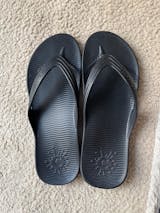Why use an insulated water bottle.
As a brand, Cheeki prides itself on creating premium insulated water bottles. When looking for a new water bottle is it worth paying a little bit extra to go for an insulated bottle? Well, here are six reasons.
It regulates the inside contents.
A vacuum insulated water bottle uses a layer of air between two layers of steel to regulate the temperature of the inside contents by slowing down the temperature transfer. Meaning that the outside temperature won’t affect the inside temperature for a prolong period of time. For Cheeki the bottles keep cold for 24 hours and hot for 12 hours. So, we you add cold water in the morning, it’s still going to be cold in the afternoon. This is great if you’re one of those people who leave their water bottle in the car. Ever drunk out of a warm plastic bottle from a hot car? Not only is it unpleasant but it could also be toxic. If you have an insulated bottle the water will remain cool whilst the outside heats up. And vice versa, if you’re out in the snow, your water will stay liquid and not freeze which is a major advantage in cold climates.
Condensation Free
There’s nothing worse than having a cold drink develop a nice pool of condensation. Well, when using an insulated bottle there is no condensation, even on the most humid of conditions.
Versatile
Insulated water bottles are very versatile for many different uses. Yes, you can just use it as a water bottle but you can also use it as a thermos to keep water hot for tea and coffee.
Durable
Cheeki’s double wall vacuum insulated water bottles are extremely durable. Our bottles use 304 [18/8] food grade stainless steel which is extremely strong and robust. Additionally, this stainless steel is resistant to corrosion and is less thermally conductive.
BPA and Toxin Free
All Cheeki products are certified by the FDA (Food and Drug Administration) to be toxin and BPA free. Using the highest quality materials Cheeki products are extremely safe to use. Not only does this ensure the longevity of the bottle, but they are resistant to bacteria and mould growth.

